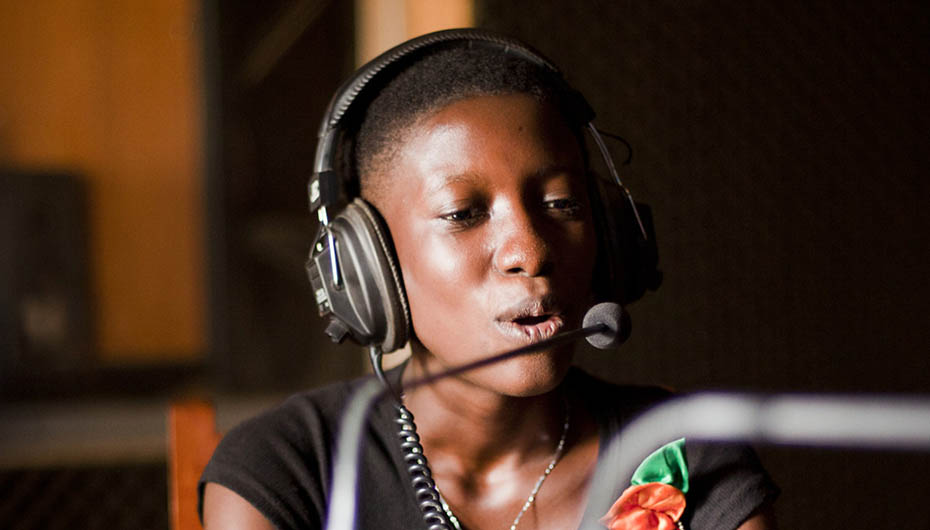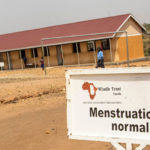Media Centre - Media release - 6 June 2019
Teenage girls in Solomon Islands demand an end to school fees

Teenage girls in the Solomon Islands are calling for the abolishment of school fees by 2020, as a new report reveals girls rarely complete high school due to fees, pregnancy discrimination and deeply entrenched gender inequality.
Fewer than one in 10 girls (7%) graduate from secondary school in the Solomon Islands: one of the lowest rates in the world.
The Stronger Together and Our Education, Our Future reports, released today by girls’ rights agency Plan International Australia provide compelling evidence that a generation of girls are missing out on education.
Plan International, alongside 60 teenage girls in the Solomon Islands, are calling on the Solomon Islands Ministry of Education to extend their ‘Fee Free Basic Education policy’ to cover senior secondary school, which would remove mandatory fees for years 10 – 12, making education more accessible for all.
The campaign has now launched and people are encouraged to show support by signing an open letter.
The agency also wants the Australian Government to prioritise girls’ secondary education in its foreign aid strategy for the Pacific region.
Plan International Australia CEO Susanne Legena said it was a tragedy so many young women were unable to realise their true potential.
“Adolescent girls in the Solomon Islands are telling us very clearly that at the root of all of these issues is gender inequality. Our research confirms this. Girls aren’t valued in the same way as boys, so this means they carry the burden of housework and childcare, they face more risks when traveling to and from school, and their education isn’t prioritised by parents who are struggling financially,” Ms Legena said.
“Just this week our Prime Minister has visited the Solomon Islands, demonstrating his Government’s intention to ‘step up in the Pacific’ and making a commitment to continue funding education. We want girls to be at the heart of the Morrison Governments aid strategy for the region and we would strongly encourage them to join us in asking the Solomon Islands Government to abolish all school fees.
“Australia is essentially undercutting its regional infrastructure investments in the Solomon Islands because they are not investing in young people who will be key to the success or failure of these initiatives. We must do better by all the girls and young women of the Solomon Islands. No one deserves to be left behind.
“The statistics are shocking. While 70 per cent of girls in the Solomon Islands finish primary school, attendance numbers drop dramatically as they transition from primary to junior secondary and take a dramatic dive by senior secondary school. The introduction of government fees at senior secondary level means many families decide they can no longer afford to invest in their daughters’ education and future.”
Social stigma around pre-marital relationships and pregnancy is another factor. School rules effectively decree that girls in relationships or who become pregnant should be expelled, and they are rarely welcomed back. A survey conducted by adolescent girls of 164 peers found that 44 per cent, or two in five, had dropped out due to child marriage or pregnancy rate. Pregnancy and birth-related complications are the leading cause of death for girls aged 15 to 19.
This research also shines a light – for the first time – on how much time adolescent girls spend on household chores. Girls in the Pacific nation told Plan International they spend an average of 18 hours doing household chores each week, which is well above the global average of 2.5 hours and leaves little time or energy for homework.
Ms Legena said these problems were magnified by high levels of violence in the community, households and classrooms. Meanwhile, girls with disabilities are not only more likely to encounter all the barriers highlighted in the report, but also face additional challenges.
“The teenage girls we worked with to produce this research took all of the photographs in the report. One of the most poignant is of an empty soft drink can. It represents the only opportunity for many children with disabilities to get ahead: they collect the cans to either fund their ongoing education or as a job when attending school is no longer possible,” Ms Legena said.
“Change is happening but it is too slow. At the recent Solomon Islands election, for the first time, two women won seats in the Solomon Islands parliament. The only way we will see this number grow, as it must, is to prioritise girls’ education.”
One of the young women who helped produce the report, Elizabeth, is advocating for change as a Plan International Solomon Islands Youth Champion.
“We are calling on the Solomon Islands’ Education Ministry to extend the Fee Free Basic Education Policy to cover senior secondary levels, so that all children have access to free secondary education by 2020. Together with donors, they should also work with and financially support schools to reduce or eliminate gap fees at all levels of education.”
Elizabeth and other Youth Champions are also working with their counterparts in Australia to campaign for the Education Ministry to develop and adopt a Gender Equality in Education policy.
“Adolescent girls must be included in decision and policy making that impacts them, and that’s why we want to be involved with developing this policy – as we have the biggest stake in its success. And this report shows we are ready to step up and show leadership in our communities, we just need the tools and opportunities to do so.
“Only when people in power listen to and value our input will we be in a position to help ourselves and our community.”
- Alongside fee-free education, girls in the Solomon Islands are also calling for:
- a cultural shift so that education for girls is seen as crucial and valued
- better facilities at school to help girls manage their periods
- free school transport to get them safely to and from school
- respect and support from their families and peers to study
- high quality sexual and reproductive health services and information to give girls and young women autonomy over their bodies
an end to child marriage - girls to be encouraged to stay in school or go back to school if they are married or become pregnant.
About Plan International
Plan International is a leading girls’ rights agency. We champion girls’ rights because we know that there is nowhere in the world where girls are treated as equals. We work alongside children, young people, supporters and partners to tackle the root causes of injustices facing girls and the most marginalised children. Plan International works in more than 75 countries to help create a just world that advances children’s rights and equality for girls. Our local office, Plan International Australia funds programs to support children in more than 25 countries, as well as sponsorship programs across the federation.
Media contacts


